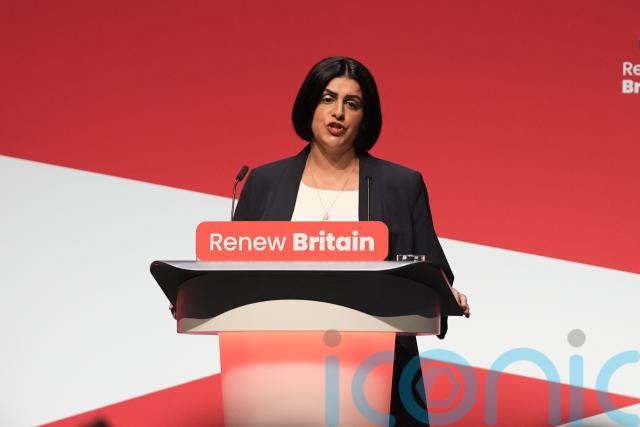
Nearly 40,000 prisoners in England and Wales have been let out of jail under the Government’s early release scheme to tackle overcrowding in prisons, figures show.
Some 38,042 inmates had been freed as of the end of June this year, according to the Ministry of Justice.
The scheme was launched as an emergency measure on September 10 last year, just days after the prison population reached a record high of 88,521.
It allows eligible prisoners to be released after serving only 40% of their fixed-term sentence, rather than the usual 50%.
It comes as part of efforts to curb overcrowding in jails. Officials warned in May that male prisons were on track to hit zero capacity by November this year.
Some 10,879 of the 38,042 early releases (28.6%) were serving sentences of six months or under, with a further 5,241 (13.8%) serving sentences of between six and 12 months.
The age group that made up the greatest proportion of early releases was 30 to 39-year-olds (37.6% of the overall total), followed by 40 to 49-year-olds (23.4%).
Meanwhile 34,332 (90.2%) were British nationals, 3,644 (9.6%) were foreign nationals and 66 (0.2%) had no nationality recorded.
HMP Humber in Brough, near Hull, has released the highest number of inmates so far under the scheme (1,126), followed by Berwyn in Wrexham (1,064); Fosse Way in Leicester (1,037); and Parc B in Bridgend (830).
The current scheme for the early release of prisoners replaced a separate scheme introduced by the previous Conservative government.
Under this separate process, 13,325 prisoners in England and Wales were freed early between October 17 2023 and September 9 2024.
Commenting on the latest release figures, a Ministry of Justice spokeswoman said the Government took “decisive action to stop our prisons from collapsing” after inheriting a prison system “in crisis”.
“Public protection is our number one priority. That is why offenders out on licence face strict conditions such as exclusion zones and being tagged, and they can be brought back to prison if they break these rules,” the spokeswoman added.
Fresh legislation aimed at ending the prison capacity crisis in the long term was also introduced in Parliament in September.
As the Sentencing Bill was laid by the then-justice secretary Shabana Mahmood, she said last year the criminal justice system was “on the verge of collapse” and vowed the legislation will ensure prisons “never run out of space again”.
The Bill includes plans for a Texas-inspired earned release scheme, where inmates who demonstrate good behaviour could be freed earlier, while those who break the rules will serve longer jail time.

The reforms are expected to come into force next year, while ministers have also vowed to build 14,000 new prison places by 2031.
Some 2,500 have so far been opened since last July, the Ministry of Justice added.
Elsewhere data published on Thursday shows there were 11,041 recalls to custody in April to June 2025 of offenders who had breached the conditions of their release, up 13% on the equivalent period in 2024 (9,782) and a jump of 62% on the same period in 2023 (6,814).
Recalls are at a “historically high” level, the Ministry of Justice said, and the rise is “likely to be associated” with the Government’s early release scheme that began in September 2024.
It also attributed the rise to a change in the law to recall under the Conservative government in April 2024, where offenders sentenced to less than 12 months will serve a short fixed term when recalled, instead of serving the rest of their full jail term.
The figures also come as ministers have dealt with the fallout of a jail blunder this week after Epping migrant sex offender Hadush Kebatu was accidentally freed from prison instead of being sent to an immigration detention centre last Friday.
Chief inspector of prisons Charlie Taylor said the mistake was symptomatic of chaos within the prison system, and that the amount of change in jails, such as different rules for early releases has been “making life difficult for prisons”.
He added that “with any luck” once the Bill is introduced and the new changes are established “this problem will go away”.
Separate figures published on Thursday by the Ministry of Justice show of the 87,465 people in prison in England and Wales as of September 30 this year, 76,333 (87.3%) were British.
The next largest nationality was Albanian (1,086, or 1.2% of the total), followed by Polish (776, 0.9%), Irish (677, 0.8%), Romanian (675, 0.8%) and Indian (364, 0.4%).
There were 10,737 foreign nationals in prisons at the end of September, down from 10,772 at the end of June but higher than 10,418 a year earlier in September 2024.
The proportion of the total prison population who are foreign nationals has increased slightly year on year, from 12.0% in September 2024 to 12.3% in September 2025.
This figure has remained around 12% for much of the past decade and reached 12.5% in June 2021.
Subscribe or register today to discover more from DonegalLive.ie
Buy the e-paper of the Donegal Democrat, Donegal People's Press, Donegal Post and Inish Times here for instant access to Donegal's premier news titles.
Keep up with the latest news from Donegal with our daily newsletter featuring the most important stories of the day delivered to your inbox every evening at 5pm.